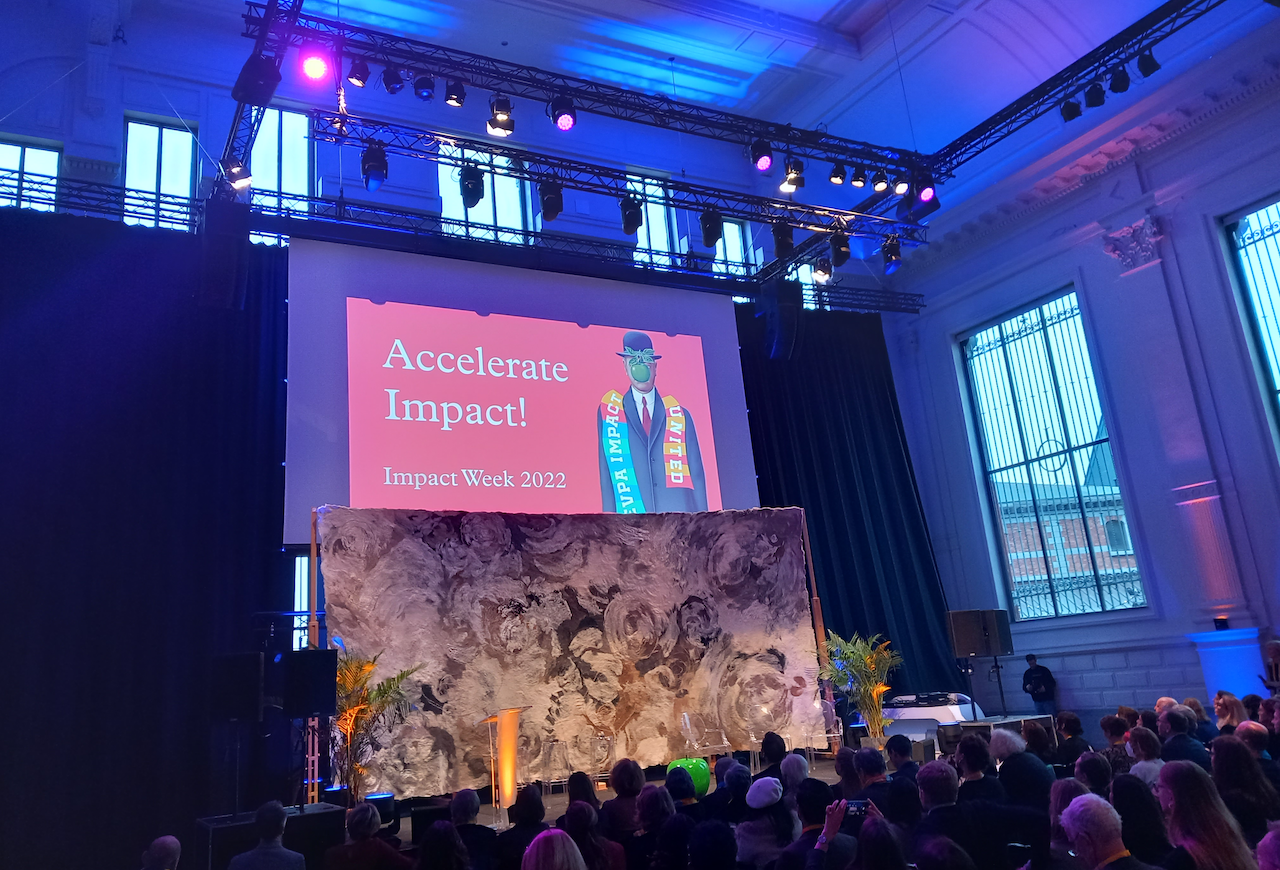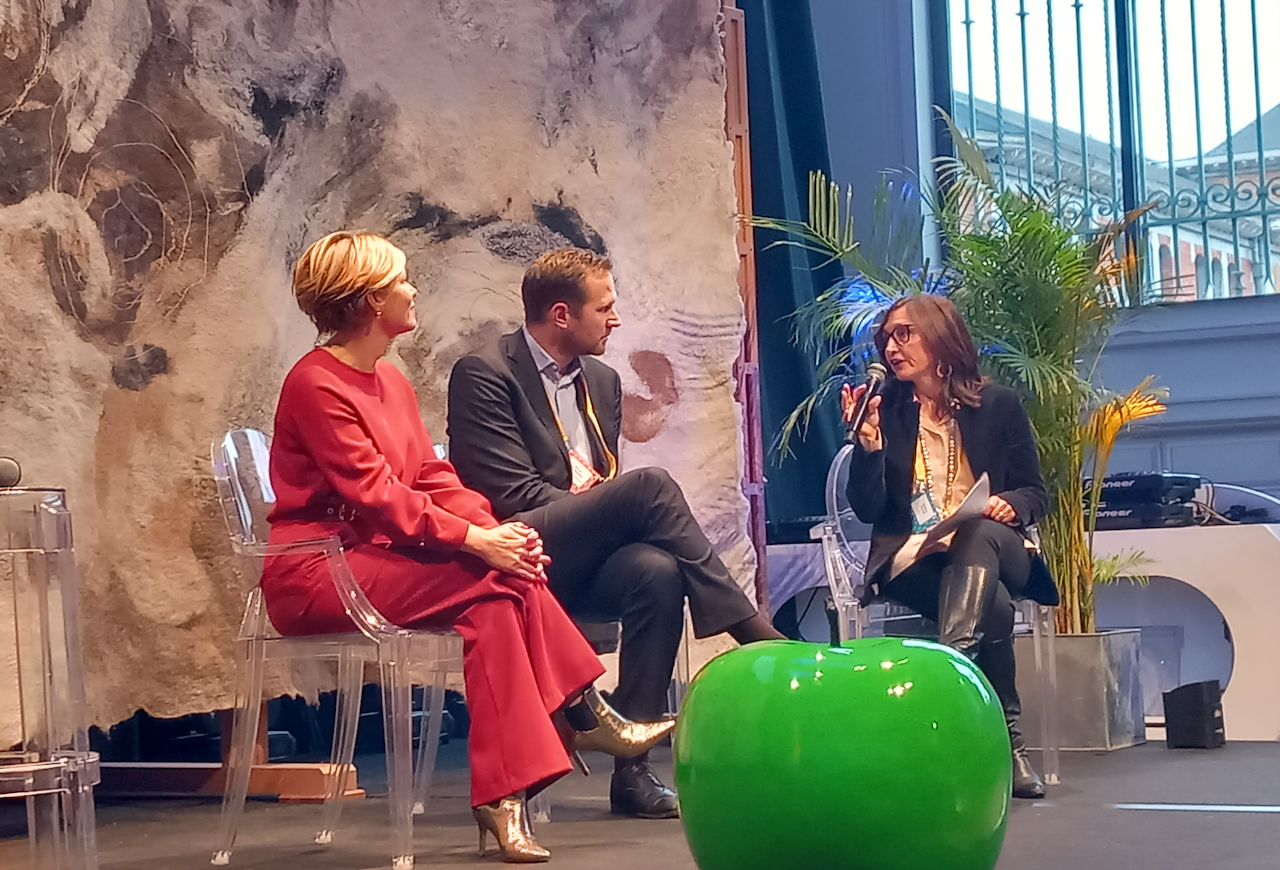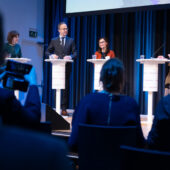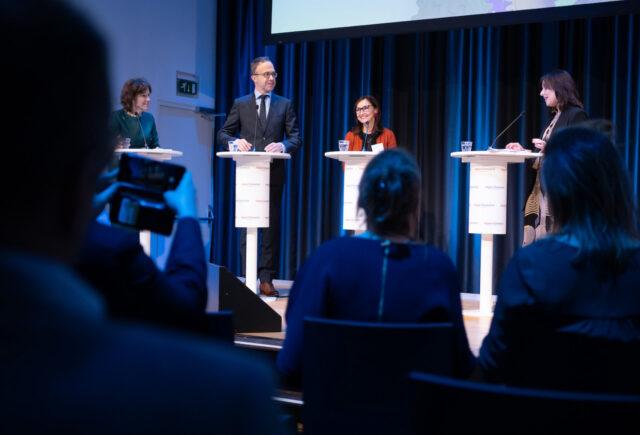An “impact extravaganza” was how one of the speakers described this year’s EVPA Impact Week & Annual Conference held in Brussels last week, writes Christian Nielsen

An “impact extravaganza” was how one speaker described this year’s EVPA annual conference, held in Brussels as part of Impact Week. More than 80 tracks were attended by some 800 souls attuned to the power of public and private capital in social investment.
What stood out was the emergence of new solutions and real-life impact stories across the world, but also finance’s changing role in healthcare for ageing populations, imbalanced food systems, and myriad environmental, societal and governmental (ESG) challenges.
EVPA’s CEO Roberta Bosurgi said the last couple of years have been “doom and gloom”, so it is important now to “celebrate our community of impact champions” working to make the world a better place. “Let’s open the dance!”
Brieuc Van Damme, CEO of the King Baudouin Foundation (KBF), spoke about the emergence of new solutions and how his organisation has transitioned from “classical philanthropy” into an ESG-focused one with €1.5bn in managed assets covering SFDR‘s Articles 6, 8 and and to some extent Article 9, and whose impact strategy is “to do as little harm as possible”.

The next step for KBF, he added, is to double its impact by “boldly going where no-one else dares” through longer-term, more de-risked investments. Finance is led by the head, he suggested, and philanthropy by the heart. He wants KBF to better align these aspects of the impact world.
Doug Miller, EVPA’s founder and retiring chair, recounted the reason so many turn out for events like Impact Week is to bring human, intellectual and financial resources together in one place. He warned against scattergun approaches. “Spray and pray” investing from individual donors is unlikely to deliver critical mass. He challenged the audience to think about what sort of world they want for their grandchildren and what needs doing in diverse areas, from better healthcare and livelihoods to climate action: “Think big, take risks and work together to make a huge difference!”
Impactful stories
Session after session presented stories, studies and business models shaping the impact journey. Too many to honour in this roundup, but a few caught Impact Investor’s eye.
Take Patrice Schneider of Pluralis who challenged people to imagine a world without media pluralism. He showed images of Russia and said we don’t have to look even outside the EU for signs of deteriorating democracy.
Through Pluralis, he is fighting back using “patient capital” and supporting “independent voices” in these countries. His fund is raising €100m and already secured €41m, half of which has been deployed.
NN Group’s Dailah Nihot announced the launch of a new Social Innovation Fund and revealed its first two projects. The first, Socialdebt from Rotterdam which is helping young people tackle their debts. The second, The Hague-based Quan, is building what its CEO Arosha Brouwer calls a “movement wrapped in software” to help companies improve employee mental wellbeing. Impact is a big priority at Quan, she said, so getting the “right investor” onboard – one who shares the same impact values – has been important.
A healthy option
EU’s ageing population means more chronic patients, treatments and hospitalisations and a huge headache for governments facing soaring costs.
Healthcare spending accounts for around 10% of EU-27 gross domestic product (Eurostat) and is growing two times faster than overall GDP, according to Emilio Ayanz, partner and impact investor at Creas. Less than 5% of patients represent 50% of the health costs in Spain, he said during the ‘Revolutionising care’ session. Due to ageing societies and more chronic and complex pathologies that gap is likely to spread, “so we have a perfect storm and need to act now”.
Deteriorating mental health is another hot spot, on both a personal and societal level. Nearly 1 billion people are living with mental disorders (World Health Organisation). COVID-19 has caused increased levels of anxiety and depression especially among younger generations, according to Ellen De Vleeschouwer of AG Health Partner. If we don’t deal with mental health issues, she warned, the impact on the economy will be huge, from social security and insurance costs to reduced working capacity and company productivity. Her company, a spin-off from AG Insurance, developed a holistic “wellbeing-as-a-service” concept to help companies of all sizes take better care of their staff.
During the ‘Future of health’ session, Martin Dewhurst of McKinsey Health Institute offered some market insights for impact investors. He said they look into areas where market incentives don’t naturally provide the scale of innovation needed in fields like mental health. Another one to watch is digital technology applied to primary health care in underserved geographic areas, especially for lower and middle-income countries.
Unpacking the food system
The food system is globally imbalanced, according to Food Unfolded (issue 09/2021), an EU-backed magazine and the subject of an Impact Week session. Some 2.5 billion people rely on agriculture for their livelihoods, and 60% of them are “extremely poor small-holder farmers exposed to exploitative conditions”. Planet-wide, there are an estimated 50,000 edible plants, yet two-thirds of calories come from just three crops – rice, wheat, and maize.
This session looked at what can be done to break the cycle and empower those who “bring food to our tables”. Here, new models to quantify the sector, new market infrastructure, tailored investment vehicles, and fairer trade practices are all key. And the consensus is that greater awareness and preparedness to pay the true cost of food – economic, social and environmental – are the right place to start.
“We still have a long way to go before trade becomes a more level playing field for everyone along the supply chain,” notes Food Unfolded, “but we all need to do our part for systematic change to happen.”





